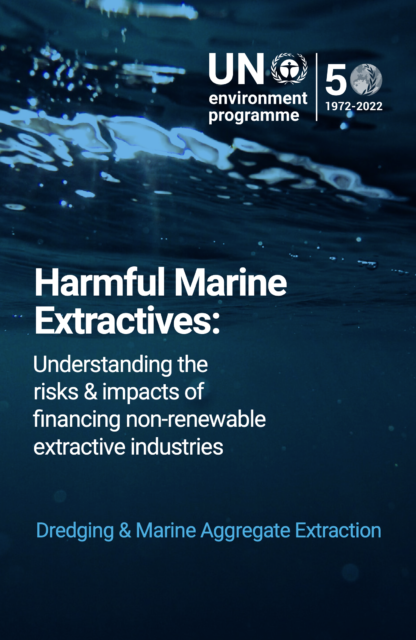Dredging and marine aggregate extraction are highly damaging to seabed habitats, leading to the loss and removal of species, and stress on marine life. However, dredging is needed for a number of sectors that can contribute to a sustainable blue economy, such as marine renewable energy, shipping, ports and coastal infrastructure. A significant amount of investment and financing continues to be directed towards this harmful activity as part of capital construction and infrastructure projects.
Recognising this, UNEP FI’s sustainable blue economy finance community has published a briefing paper, focusing on the intersection of finance and dredging activity. Designed for banks, insurers and investors, this paper highlights financial, reputational and regulatory risks associated with dredging, setting out a pathway for positive change, and the support of a transition to more responsible practices.
This is the first of three briefing papers on harmful marine extractives, with two to follow later this quarter, with the other two covering the offshore oil & gas and deep-sea mining sectors
More on Ocean Finance from UNEP FI
- Turning the Tide: with recommendations on seafood, shipping, marine renewable energy, coastal tourism and ports.
- Diving Deep: with recommendations on ocean pollution and coastal infrastructure
- Recommended exclusions list: activities to exclude from financing due to their damaging impact on the ocean and high risk (derived from ‘Turning the Tide’).
- Rising Tide: maps the ocean finance space and is a great introduction to those new to this topic.
Learn more
- Visit UNEP FI’s Sustainable Blue Finance website
- Discover the Sustainable Blue Economy Finance Principles



